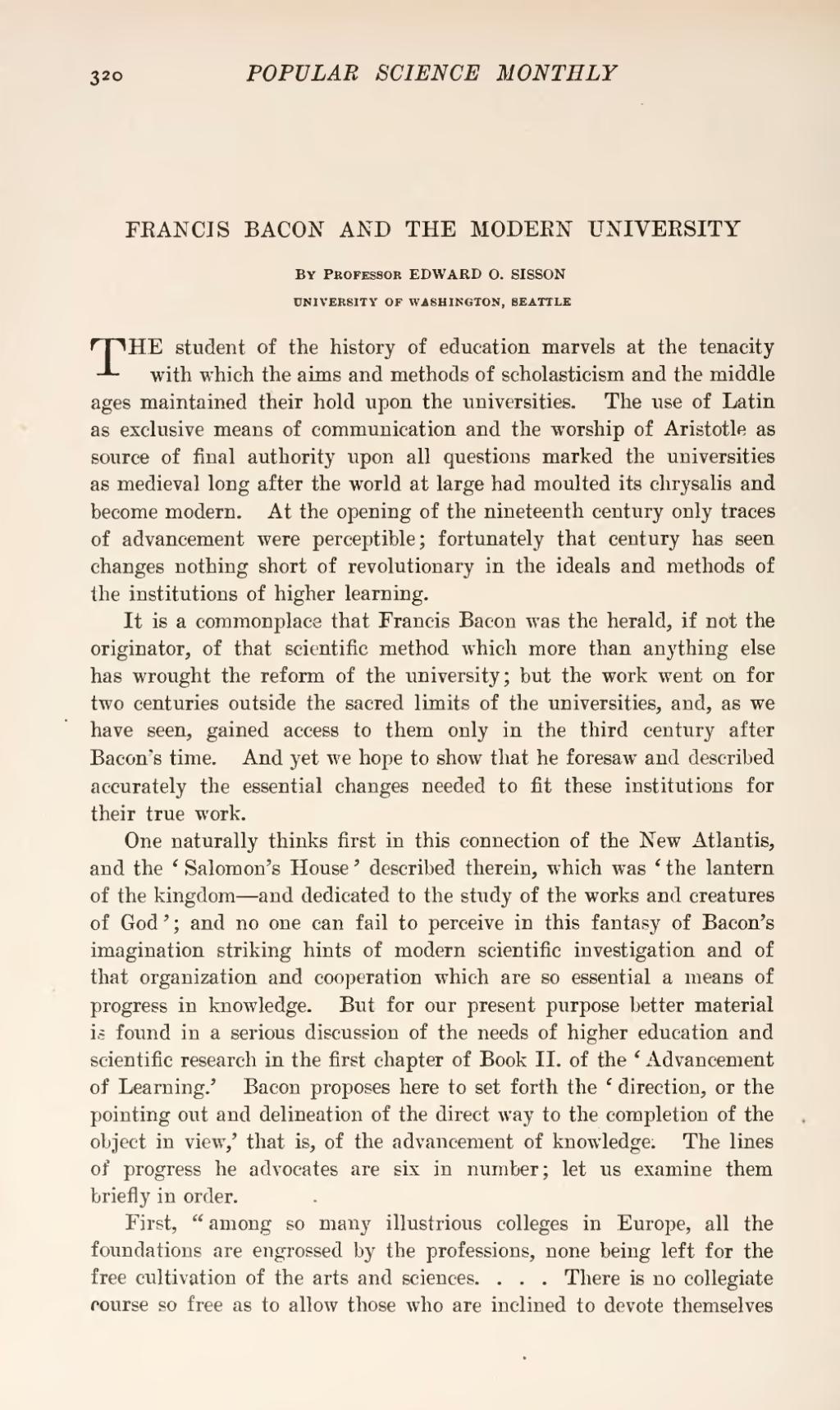| FRANCIS BACON AND THE MODERN UNIVERSITY |
By Professor EDWARD O. SISSON
UNIVERSITY OF WASHINGTON, SEATTLE
THE student of the history of education marvels at the tenacity with which the aims and methods of scholasticism and the middle ages maintained their hold upon the universities. The use of Latin as exclusive means of communication and the worship of Aristotle as source of final authority upon all questions marked the universities as medieval long after the world at large had moulted its chrysalis and become modern. At the opening of the nineteenth century only traces of advancement were perceptible; fortunately that century has seen changes nothing short of revolutionary in the ideals and methods of the institutions of higher learning.
It is a commonplace that Francis Bacon was the herald, if not the originator, of that scientific method which more than anything else has wrought the reform of the university; but the work went on for two centuries outside the sacred limits of the universities, and, as we have seen, gained access to them only in the third century after Bacon's time. And yet we hope to show that he foresaw and described accurately the essential changes needed to fit these institutions for their true work.
One naturally thinks first in this connection of the New Atlantis, and the 'Salomon's House' described therein, which was 'the lantern of the kingdom—and dedicated to the study of the works and creatures of God'; and no one can fail to perceive in this fantasy of Bacon's imagination striking hints of modern scientific investigation and of that organization and cooperation which are so essential a means of progress in knowledge. But for our present purpose better material is found in a serious discussion of the needs of higher education and scientific research in the first chapter of Book II. of the 'Advancement of Learning.' Bacon proposes here to set forth the 'direction, or the pointing out and delineation of the direct way to the completion of the object in view,' that is, of the advancement of knowledge. The lines of progress he advocates are six in number; let us examine them briefly in order.
First, "among so many illustrious colleges in Europe, all the foundations are engrossed by the professions, none being left for the free cultivation of the arts and sciences. . . . There is no collegiate course so free as to allow those who are inclined to devote themselves

